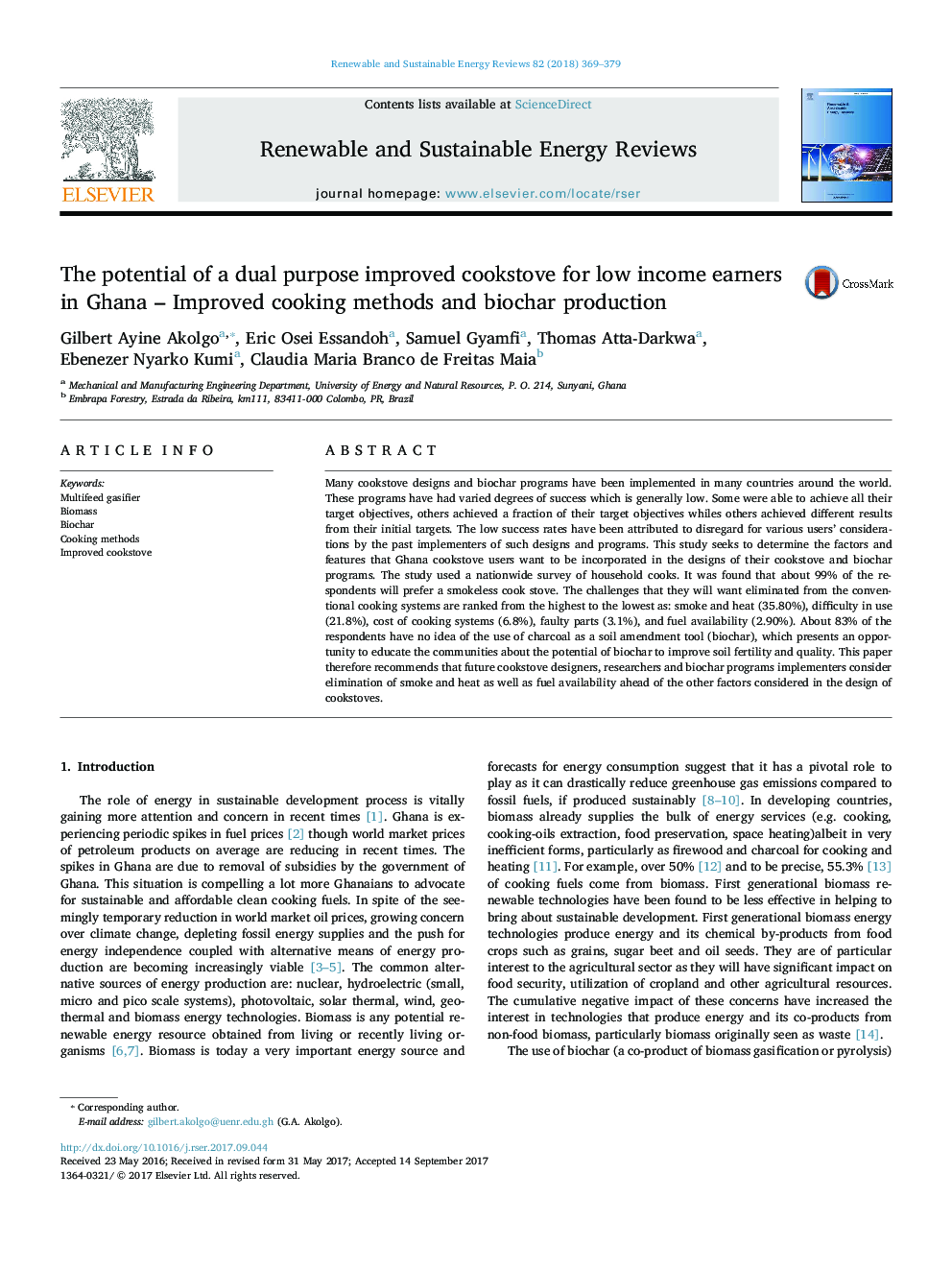| Article ID | Journal | Published Year | Pages | File Type |
|---|---|---|---|---|
| 5481873 | Renewable and Sustainable Energy Reviews | 2018 | 11 Pages |
Abstract
Many cookstove designs and biochar programs have been implemented in many countries around the world. These programs have had varied degrees of success which is generally low. Some were able to achieve all their target objectives, others achieved a fraction of their target objectives whiles others achieved different results from their initial targets. The low success rates have been attributed to disregard for various users' considerations by the past implementers of such designs and programs. This study seeks to determine the factors and features that Ghana cookstove users want to be incorporated in the designs of their cookstove and biochar programs. The study used a nationwide survey of household cooks. It was found that about 99% of the respondents will prefer a smokeless cook stove. The challenges that they will want eliminated from the conventional cooking systems are ranked from the highest to the lowest as: smoke and heat (35.80%), difficulty in use (21.8%), cost of cooking systems (6.8%), faulty parts (3.1%), and fuel availability (2.90%). About 83% of the respondents have no idea of the use of charcoal as a soil amendment tool (biochar), which presents an opportunity to educate the communities about the potential of biochar to improve soil fertility and quality. This paper therefore recommends that future cookstove designers, researchers and biochar programs implementers consider elimination of smoke and heat as well as fuel availability ahead of the other factors considered in the design of cookstoves.
Related Topics
Physical Sciences and Engineering
Energy
Renewable Energy, Sustainability and the Environment
Authors
Gilbert Ayine Akolgo, Eric Osei Essandoh, Samuel Gyamfi, Thomas Atta-Darkwa, Ebenezer Nyarko Kumi, Claudia Maria Branco de Freitas Maia,
